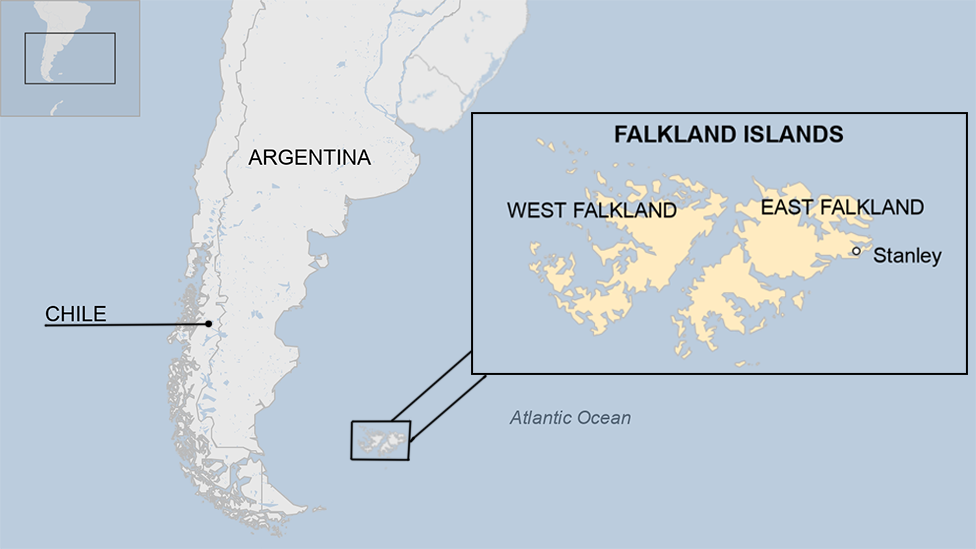Falklands dispute may last decades - Argentina president
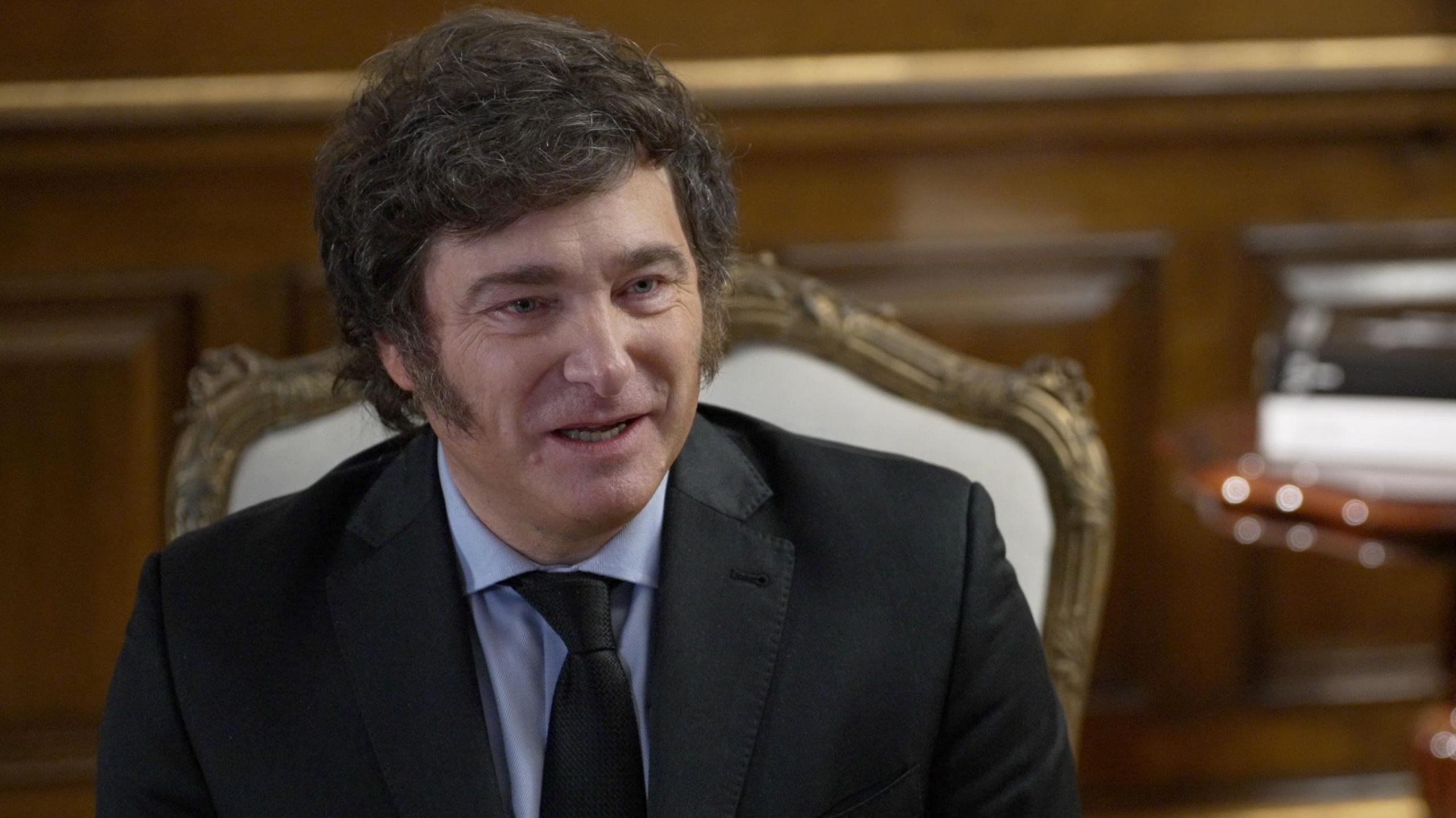
- Published
Argentina’s president Javier Milei says he accepts the Falkland Islands are currently “in the hands of the UK".
In an interview with the BBC, the right-wing politician vowed to get the islands back through diplomatic channels but said there was “no instant solution”.
His language on the status of the Falklands is different from past leaders who have historically maintained the islands are Argentine.
President Milei admitted it could take decades to try to gain sovereignty of the Falkland Islands from the UK and said Argentina does not "seek conflict".
It comes after he promised a “roadmap” for the islands to become Argentine, on the 42nd anniversary of the Falklands War in early April.
He had criticised politicians who “beat their chests demanding sovereignty of the islands, but without any result”.
The UK and Argentina went to war over the British overseas territory - known as the Malvinas in Argentina - in 1982.
The invasion claimed the lives of 255 British servicemen, three islanders and 649 Argentinian personnel.
But President Milei praised Margaret Thatcher who was the UK prime minister during the Falklands War.
He was speaking in his presidential palace office, in which there was some Margaret Thatcher memorabilia on a display table.
Elsewhere, sat a photograph of a former Argentine president with the Rolling Stones, a bust sculpture of himself, and a water bottle with his photograph on it.
Lady Thatcher ordered the torpedoing of the Argentine naval cruiser the General Belgrano during the war, resulting in the deaths of 323 people on board.
Asked if he still admired her, President Milei said: “Criticising someone because of their nationality or race is very intellectually precarious. I have heard lots of speeches by Margaret Thatcher. She was brilliant. So what's the problem?”
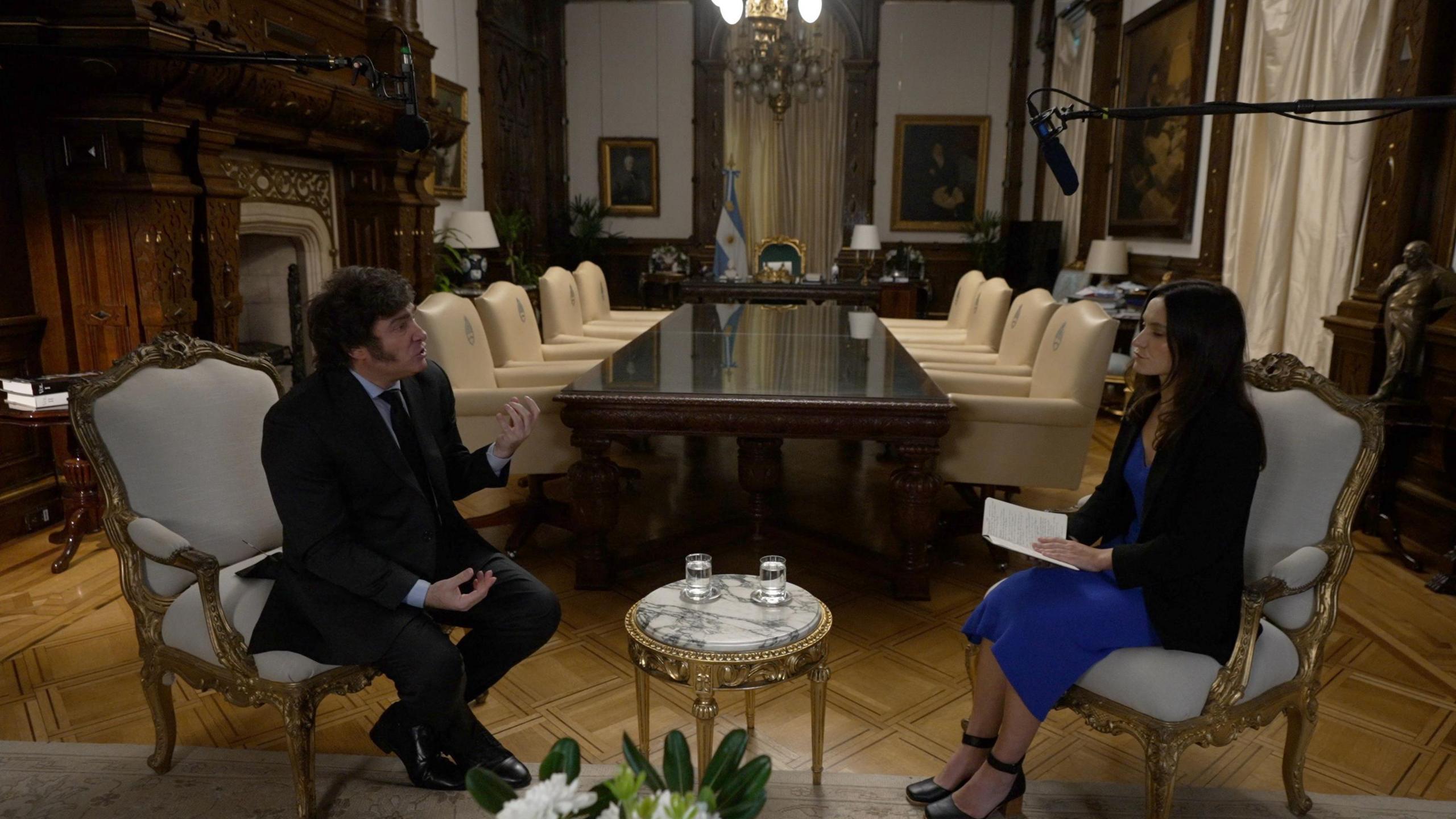
Javier Milei was interviewed by Ione Wells in the presidential palace
Argentina has long claimed sovereignty over the islands in the south-west Atlantic Ocean - 300 miles off its coast and 8,000 miles from the UK . There is a plaque of them displayed in a courtyard of the presidential palace in Buenos Aires.
The UK’s Foreign Secretary, Lord Cameron, visited the islands in February and said their sovereignty was not up for discussion.
President Milei said: “If that territory is now in the hands of the UK, he has a right to do that. I don’t see that as a provocation.”
That seems like a significant remark as past leaders and many Argentines have always refused to accept the islands were British.
In 2013, when Lord Cameron was prime minister, islanders voted in favour of remaining a UK overseas territory.
President Milei said he wanted the islands to become Argentine “within the framework of peace”.
“We are not going to relinquish our sovereignty, nor are we going to seek conflict with the United Kingdom,” he said.
He refused to put a timeframe on this, saying “it’s going to take time” and it would involve a “long-term negotiation”.
When asked why the UK would agree to this, he told the BBC: “They might not want to negotiate today. At some later point they might want to. Many positions have changed over time.”
He denied it was not a priority of his but, when pushed, admitted “of course” it could take decades - referencing the handover of Hong Kong from the UK to China in 1997.
His rhetoric is notably tamer than his left-wing predecessor Alberto Fernandez, who called the islands “stolen land” and the UK’s claim on them “disgusting”.
Under his leadership, Argentina broke a co-operation deal and pushed to reopen talks on the islands.
President Milei’s approach has surprised some, given his radical approach to other policies during his campaign - for example campaigning with a chainsaw to symbolise his desire to slash public spending and the state, which he also defended in the interview.
Related topics
- Published4 January 2024
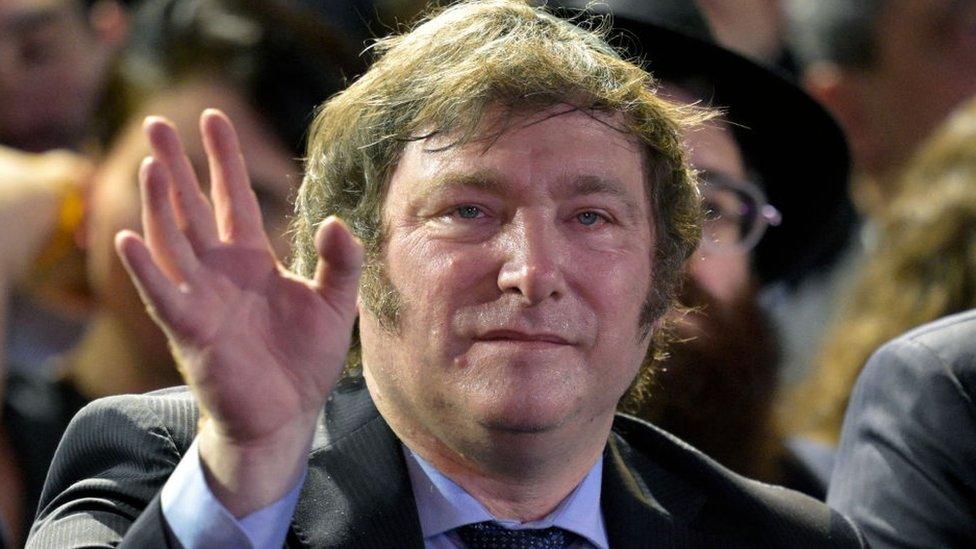
- Published20 November 2023
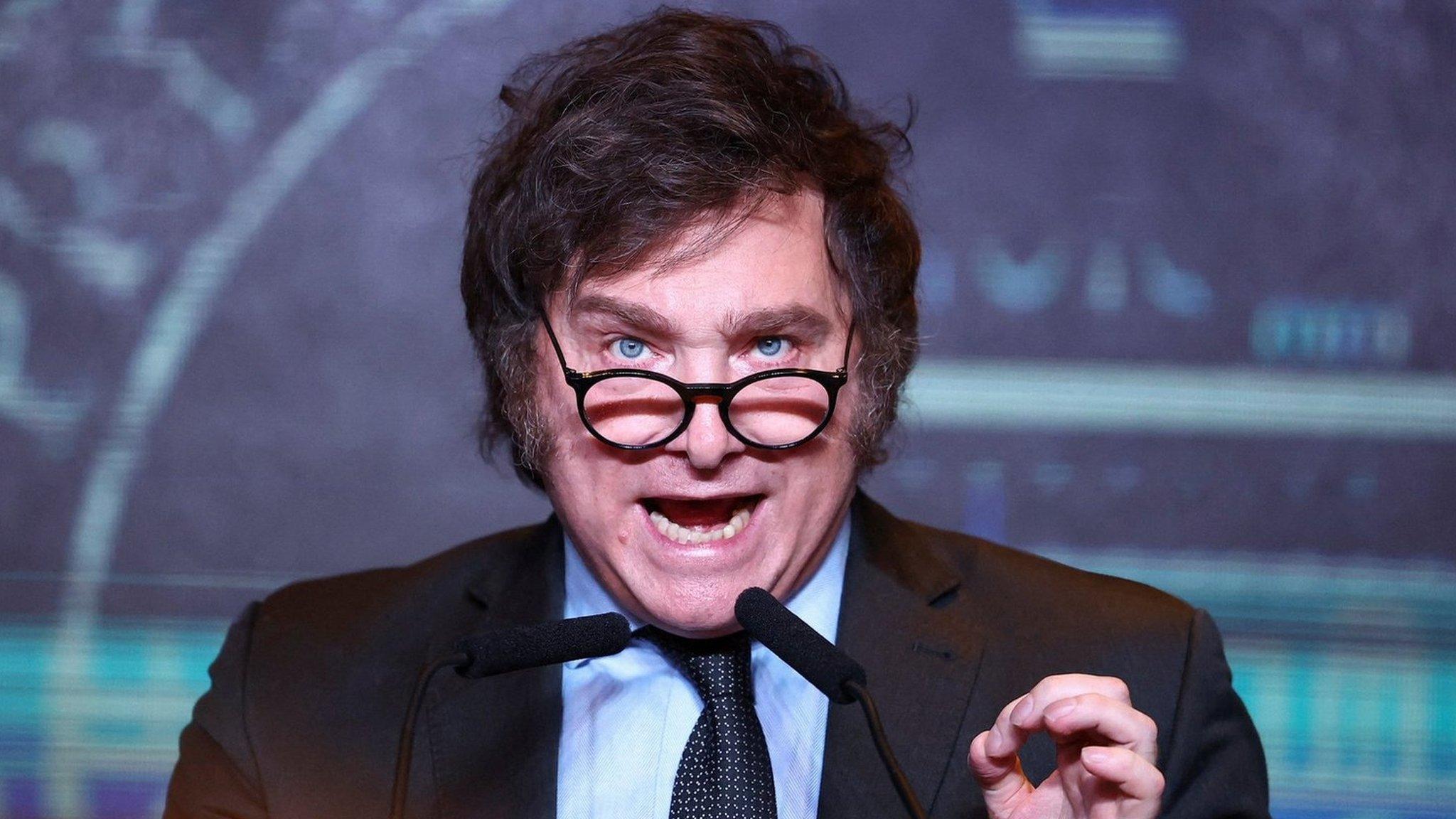
- Published18 February 2024
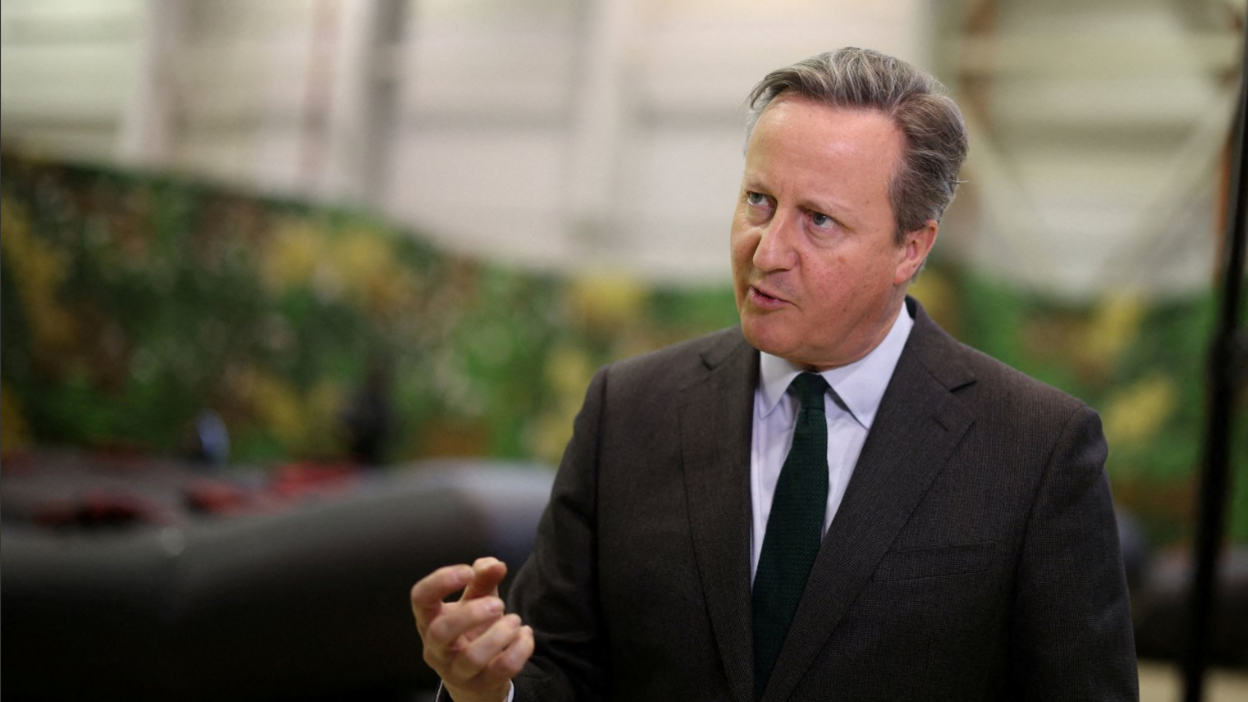
- Published8 January 2024
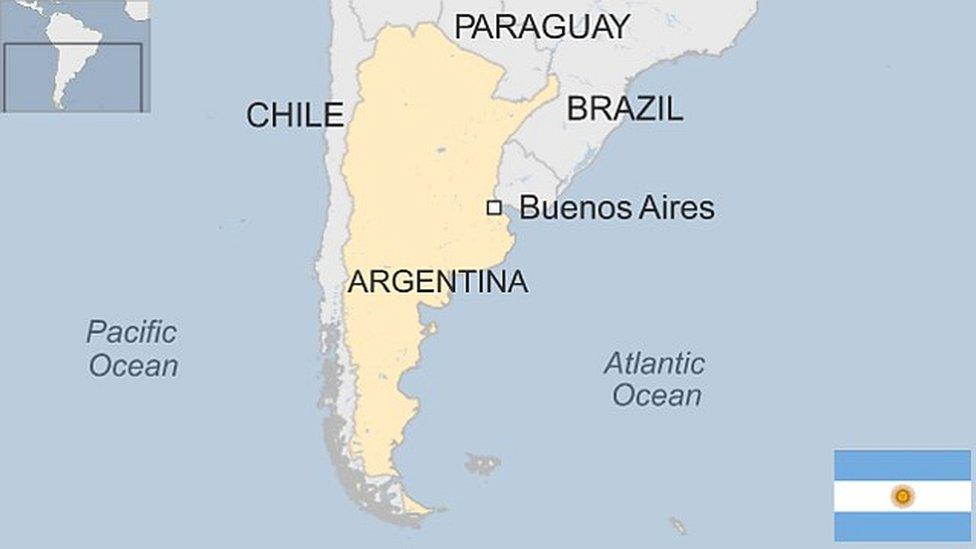
- Published7 September 2023
